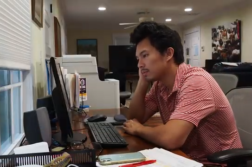ORLANDO, Fla. (Ivanhoe Newswire) — Since the passage of the Affordable Care Act in 2010, health insurance appeals have increased, and up to 60 percent of them are now won. So, what can you do if your insurance denies a claim?
The most recent data shows the average American spends nearly ten thousand dollars a year on health insurance coverage. But what happens when your insurer refuses to pay a bill or denies a claim? Making an appeal can sound scary, but it’s the best way to fight back. The first step: know what’s covered. You can read your policy or call your insurer to confirm benefits. Next: gather your evidence. Ask your hospital or doctor’s office for copies of everything so you can submit them to your insurer. Before you do though, look for any mistakes. Studies have found up that to 80 percent of medical bills contain errors. Then, ask your insurance company for their standard appeals form. This might get your appeal through more quickly than a letter. Fill it out, send it in, and don’t forget to follow up if you don’t hear back in the time frame you were given. If you need assistance with the process, several advocacy groups can help. Check with Patient Advocate Foundation or the Alliance of Claims Assistance Professionals. If you’ve exhausted your options, contact your state’s health care department. They may be able to advance your cause or suggest new approaches for your appeal.
Don’t assume that you cannot file an appeal because you used an out-of-network doctor or medical facility. If you can prove that it was an emergency or that the procedure or doctor was medically necessary, you may have a good case for an appeal.
Contributors to this news report include: Julie Marks, Producer; Katie Campbell, Assistant Producer; Roque Correa, Videographer and Editor.
To receive a free weekly e-mail on Medical Breakthroughs from Ivanhoe, sign up at: http://www.ivanhoe.com/ftk



